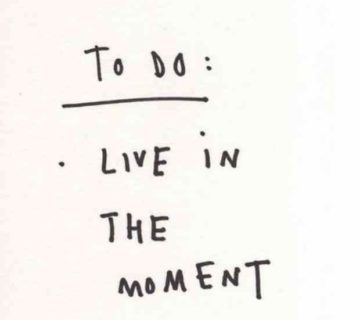Thinking of changing your job or career? This can be a major step in your life and the decision to change should not be taken likely. Understanding why you need the change is probably the most important thing to pin down and once confirmed will assist you in choosing the right path. In last week’s post we explored environmental reasons as possible motivators for change. In this post we will look specifically at behaviour.
The behaviour level in Gregory Bateson’s Logical Levels of Change is an interesting one as you can evaluate behaviour in two different ways. Firstly, how you behave within your current work environment. Are you considering a change because your behaviour changes for the worst within your current environment. Secondly, how you observe and react to other people’s behaviour in that particular environment. One could align day-to-day work behaviour with the invisible side of an organisation – its corporate culture.
Let’s firstly examine your behaviour being a reason for change.
Does your current working environment cause you to behave differently? This can be a tricky question as the majority of the time, we like to think that we are stable individuals whose behaviour is consistent between our work and private lives. In some cases this is true, but in others there can be a vast difference.
If you believe your behaviour does change for the worse within your working environment, then is it your actual job and areas of responsibility or is it how you react to the job that requires a change?
Let’s say for example you struggle to manage your stress levels. So when you become stressed out your behaviour changes and you become moody, short tempered and aggressive. The problem could then lie in your ability to manage your stress levels, not necessarily the job.
If you did change your job or career, would that change guarantee a less stressful environment? Probably not, because how you manage your stress levels is not necessarily related to the job or task at hand, but simply how skilled or unskilled you are in managing stress or any other negative behaviour that might arise.
Would it not serve you better to work on your behaviour challenges in your current position than end up relocating your problems to a new environment? Is it the job or is it you?
When analysing your own behaviour take the following into consideration.
- How you tend to react in work situations. What is your behaviour pattern at work? Why are you behaving this way?
- What is your typical behaviour? On reflection, is that the type of behaviour you wanted to portray?
- Is your behaviour different to how you would normally behave outside of the working environment?
- Does your behaviour make you happy, does your behaviour make you proud?
The second part of this evaluation is more challenging as it is an area that you cannot always control and that is other people’s behaviour. Trying to work within a business where other people’s behaviour constantly makes you feel uncomfortable can be incredibly daunting and exhausting.
Consider the following:
- If you verbalised your unhappiness, would your behaviour change for the better? In other words, is the behaviour isolated to one or two individuals and thus not a company culture issue.
- Are you in a position where you can influence a change in behaviour?
- Are you able to overlook your colleague’s behaviour because you enjoy your job?
- Do you believe that how people behave and conduct themselves is key to how you perform your duties and tasks?
If you believe your issues are behavioural, what is your action plan to remedy them? What is your change plan?
If you believe that the reason for your career or job change is not behaviour-related, then look out for next week’s blog post where Skills and Capabilities will be discussed.
- A business strategy is not enough - June 3, 2024
- Networking – quality or quantity? - February 19, 2024
- How behaviour profiling can work for your business - January 5, 2024



